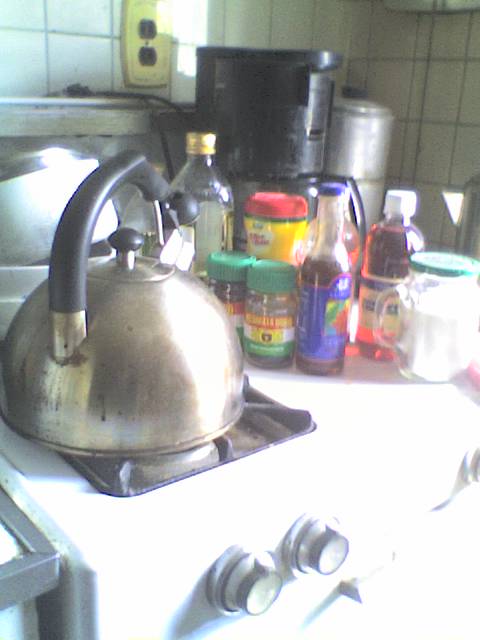Syria's vicious and long civil war has made many forget about the country's cuisine. It was well known for its' bulgar and kefti,hummus and parsley salad. The country was also the top producer of the Aleppo pepper, a fiery spice that gave the food its' kick,
Tom Verde, an expert on Islam and Middle Eastern history wrote this informative piece about Syria's contribution to the global culinary table. The Alepo pepper is part of the capiscum family, and grows in pods. The result is a naturally oily pepper that is first partially ground and then coarsely ground with olive oil and a bit of salt. The mix is then left to completely dry out which results in ruby red, slightly salty flakes that can keep well in the freezer thanks to the oil.Due to the fighting and bombing, acquiring the Aleppo pepper is hard, especially for Syrian home chefs and restaurants here in the States. One restaurant owner, Nidal Hajomar, owner of Aleppo's Kitchen in Anaheim, California has to rely on his wife's parents for the spice. They still live in Khalidiyah, in northwestern Aleppo and can still buy fresh peppers. They make the mix at home and ship it to Mr. Hajomar. The pepper ,though , is now being cultivated in the States, in Virginian nurseries, the Midwest and Southern California. Home chefs can buy it at their local spice shops or Walmart. They can also be grown in your backyard too. You can either buy the seeds or young plants at various nurseries.
What makes the Aleppo Pepper so special? The taste. According to Chad Lowcock, owner of Race City Spice Works says that the flavor is slightly tomato-y, with a background sweetness. He has created a chutney like sauce called Roasted Aleppo and Cayenne Shaata, the last a medium hot combination of of cayenne, fresh garlic and the dried flakes from Turkey and Greece. The blend is then hydrated in red wine and fresh Aleppo peppers from local markets are roasted and added.Other chefs like its' taste - a departure from other chilis thanks to its' fruity and citrus-y flavor. There's a bit of sweetness to it which makes it perfect for sauces along with for marinated and raw fish. Syrians use it for more traditional dishes such as hummus, kebabs and muhammara, a red pepper dip that 's both hot and sweet thanks to pomegranate syrup. You can try these but you can experiment with it by adding a shake or two into ground beef for Syrian meatballs but also try it in such traditional dishes as tabbouleh and hummus.
Aleppo pepper is a reminder of delicious Syrian cuisine. It can still be used in traditional dishes, yet also can spark up new ones. It truly is a treasure that needs to continue , despite the strife.
Thursday, October 11, 2018
Aleppo Peppers A Syrian Treasure
Labels:
Aleepo peppers,
cayenne,
Chad Lowcock,
fruity,
hummus,
kebabs,
Middle Eastern,
muhara,
olive oil,
peppers,
redwine,
salt,
Tom Verde
Subscribe to:
Post Comments (Atom)




No comments:
Post a Comment